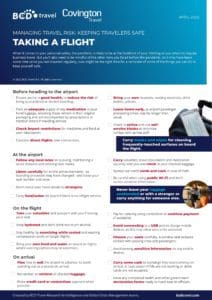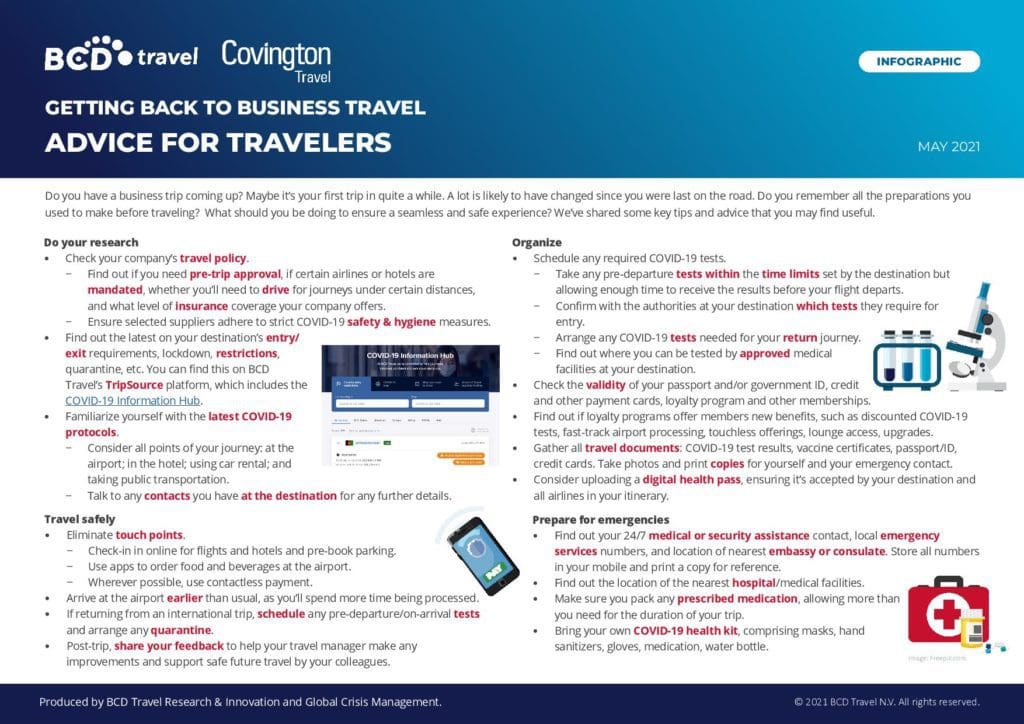 The current U.S. economic expansion has now lasted for a record period. Will travel prices continue soaring upward or will rising supply slow their increase? This is the question companies grapple with as they prepare for 2020 budgets. The 6th annual Global Travel Forecast, published by the Global Business Travel Association (GBTA), gives some insight as to what you can expect in travel pricing in the next year.
The current U.S. economic expansion has now lasted for a record period. Will travel prices continue soaring upward or will rising supply slow their increase? This is the question companies grapple with as they prepare for 2020 budgets. The 6th annual Global Travel Forecast, published by the Global Business Travel Association (GBTA), gives some insight as to what you can expect in travel pricing in the next year.
The major takeaway of the forecast is that after posting sharp rises in 2019, prices in the global travel industry are likely to slow in 2020. The global economy is largely healthy and expected to increase by 3.6% in 2020 but uncertainty about various worldwide conditions will keep increases in travel pricing moderate. The study predicts that overall, flights will rise 1.2%, hotels 1.3%, and rental car rates will go up 1%.
“Technological advancements and an increasingly volatile economic and political landscape across the globe have changed the way today’s travel buyers need to do their jobs,” said Scott Solombrino, GBTA COO and Executive Director. “This annual forecast provides insights into the key drivers forcing these shifting priorities and gives a road map for travel buyers looking to plan their 2020 travel programs.”
North America
Tariffs and trade wars are creating uncertainty in the U.S. economy so the overall GDP growth is expected to gradually slow through 2021. Flight prices will rise but airlines may make ancillary fees such as Wi-Fi and lounge access negotiable to corporate travelers to stay competitive.
Hotel expansion will slow, giving high pricing a chance to correct itself. Still high hotel prices in tech-focused cities of the West – Seattle, San Francisco, and San Jose – will get higher and push business travelers to stay farther away from the city to save.
Car rental companies are seeing a shift in vehicle preferences from traditional sedans to SUVs and trucks. Because negotiated contracts are traditionally for long periods, ground transportation prices will rise minimally until 2021 or 2022.
Europe, Middle East & Africa
This area of the world experiences a lot of unrest – labor issues, rising oil prices, climate change protests, and regional terrorism – that could curtail travel demand. On the other hand, the International Monetary Fund (IMF) expects growth of .3% in the Middle East, 1.6% in Europe, and 3.6% in Africa.
The new Istanbul airport will become a game-changer as a new stopover point for flights between Europe and Asia. Denmark’s high hotel prices should come down some, but Egypt’s will rise as much as 4.7% as their economy regains stability. Car rental prices in Eastern Europe should rise some due to demand and rail prices remain varied across the continent.
Asia Pacific
Tighter global financial conditions and deteriorating China-U.S. relations have slowed Asia’s economic growth; however, it is still growing while holding inflation at bay.
The shutdown of India’s Jet Airways earlier in 2019 affected some popular air routes, but other airlines added flights to compensate and fares have regulated. In Japan, hotel supply is in double-digit growth as the country prepares for the Rugby World Cup this year and the Olympic and Paralympic Games in 2020. China’s multiple ride-sharing providers are expanding aggressively while also improving safety measures.
Forecast Methodology
GBTA developed their statistical model with market and economic research firm Rockport Analytics. Information was sourced from Moody’s Analytics, the International Monetary Fund Research Department, the United Nations, and other leading organizations.
For travel management services, contact your Covington Account Representative. For travel reservations, contact a corporate travel advisor.







Leave a Reply